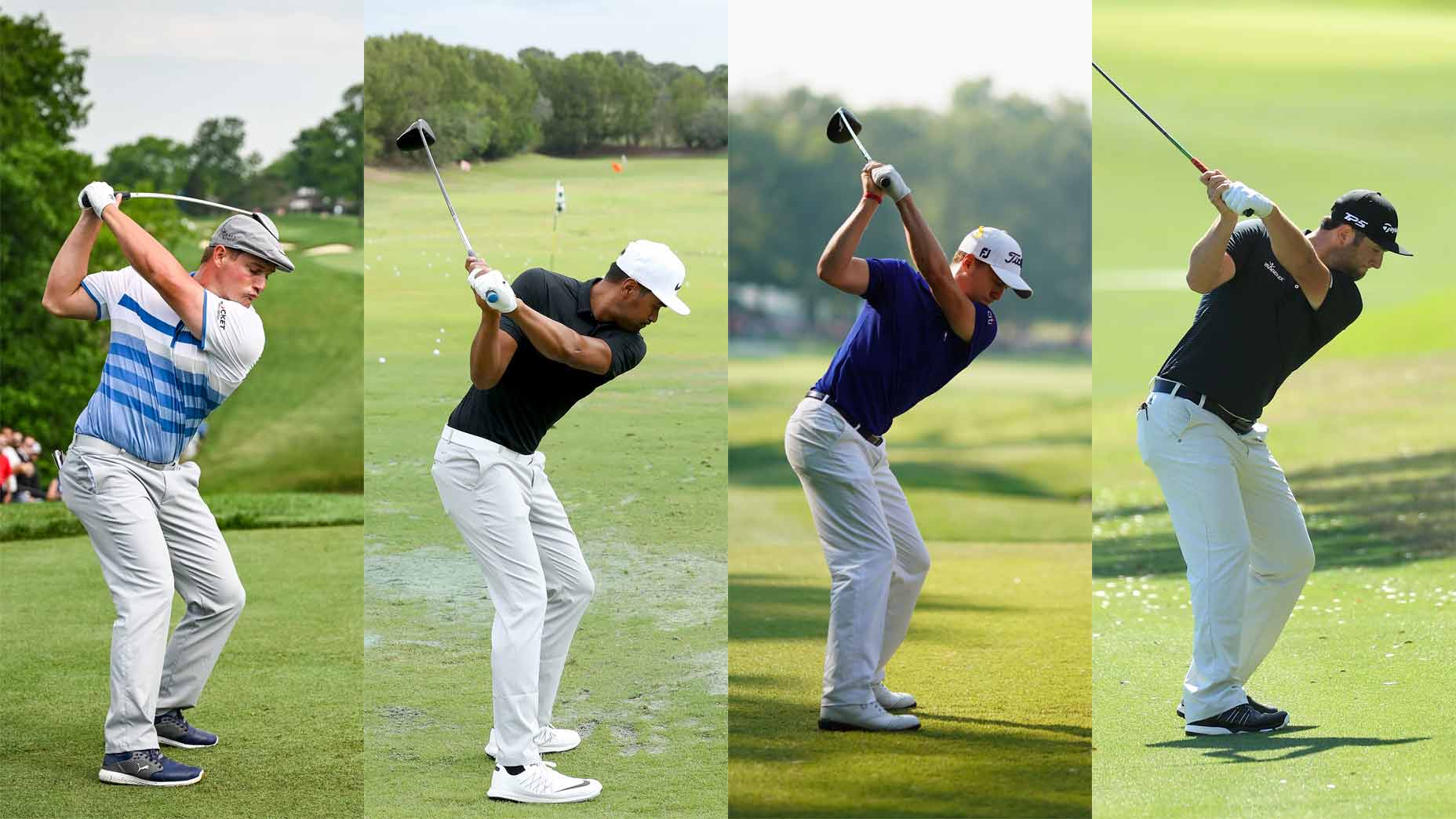Golf swings are not snowflakes.
Often, I hear rec golfers — and even some golf instructors who should know better — say, “Every swing is unique.” To some degree, that’s true. Every golfer is unique. But the best swings share traits the “unique” swings don’t, and that’s a claim backed up by GOLFTEC’s terabytes of swing data.
To prove it, we can check some downswing data using GEARS Golf, a motion-capture system that measures the swings of the world’s best golfers. For starters, see the quartet of images below from some of pro golf’s superstars.
There’s a lot going on here, so let me help narrow your focus. First, look at these players’ hands. Notice how each is occluding (blocking) the middle and lower part of their right/trail arm. The hand path depth, or distance from the ball to the hands, is crucial for getting the path of your swing straight into the ball. If your hands are closer to the ball at this point in your downswing, you’re leaving yourself susceptible to slices, blades or worse… shanks. This point in your downswing preprograms a lot of the variables you’re likely to have at impact. More simply, you don’t want to mess it up.
Now, take a look each player’s hips. Relative to address, they’re nearly identical — or slightly more turned away from the target than toward it. This hip turn through the ball is significant, and it also comes later on in the swing. If you’re struggling with pushes and fades, it’s possible you have your hips turned more toward the target than these expert-level players.
Another observation worth admiring: the angle of the shaft. None of the four players below has more than a few degrees of separation between the steepest and flattest shaft angles produced in other parts of their swings. Combine that with each player’s torso, which is angled toward the ground and closed to the target, and — voilà! — a power draw.
Golf is hard for a lot of reasons, but it shouldn’t be because players don’t realize the gap between what they’re doing and what they should be doing. If I had to distill the most important picture in the swing to get it “right,” it’s what you see below. And that’s the same for every single golfer, no matter their swing.
Take a video of yourself mocking this position and see if you notice any improvement. If you’re still struggling, come in to GOLFTEC to have a professional coach evaluate your downswing. With over a thousand instructors and more than 200 locations in North America, the fix might be easier than you think.
Nick Clearwater is based at GOLFTEC’s headquarters in Denver, Colo.
